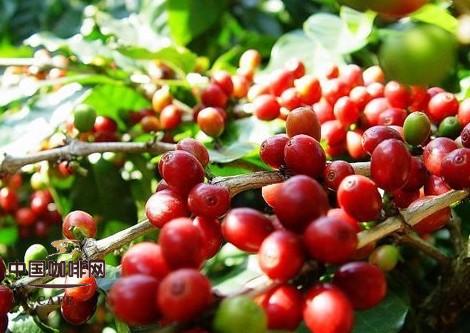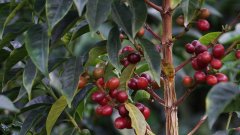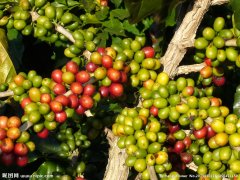African boutique coffee beans Burundi Burundi Brundi Champion processing Factory Cajanza Province Coffee
Fine coffee is fresh coffee. Whether it's food or drink, the fresher the better, and so is specialty coffee. Coffee beans should be kept fresh before making fine coffee, including the preservation of roasted beans, and the coffee beans should be ground before making, which is also to retain its most original and best flavor. The hand-brewed coffee making method is such a way to make fine coffee, and it is also one of the coffee making methods that can best retain the original flavor of coffee. Fine coffee is good coffee and harmless to health. Unlike coffee made with inferior coffee beans, fine coffee uses high-quality coffee beans. Freshly made coffee is harmless to health. Drinking it in moderation is beneficial to the body and mind.

Burundi is located south of the equator in central and eastern Africa. It borders Rwanda to the north, Tanzania to the east and south, Congo to the west and Lake Tanganyika to the southwest. There are many plateaus and mountains in the territory, most of which are composed of plateaus on the east side of the Great Rift Valley. The average altitude of the whole country is 1600 meters, which is called "Mountain Country". More than half of them sit on the famous Lake Tanganyika. The capital is Bujumbura. West lakeshore and river valley and east for tropical savanna climate; central and western tropical mountain climate. The annual average temperature is 20~24℃, and the highest temperature can reach 33℃. March to May is the heavy rainy season, October to December is the light rainy season, and other months are the dry season.
Burundi has one of the most diverse and successful coffee industries in the world, and it has its own characteristics. Coffee was introduced to the country by Belgian colonists in 1930 and is now grown only on small farms. Unfortunately, many of these farms are located on the border with war-torn Rwanda, putting pressure on coffee production. Coffee produced in Burundi is almost exclusively Arabica beans, while coffee trees in Ngozi are grown at more than 1200 meters above sea level. Burundi coffee is aromatic and rich in flavor, with excellent acidity, and most of the products are exported to the United States, Germany, Finland and Japan.
Important Notice :
前街咖啡 FrontStreet Coffee has moved to new addredd:
FrontStreet Coffee Address: 315,Donghua East Road,GuangZhou
Tel:020 38364473
- Prev

Yega Chuefei Ethiopia Ariga aricha light fermented wine sweet orange spice African coffee bean P
Boutique coffee is fresh coffee. Whether it's food or drink, of course, the fresh the better, and so is boutique coffee. High-quality coffee should keep the coffee beans fresh before making, including the preservation of baked beans, and grind the coffee beans into powder before making, which is also to retain its original and best flavor. And the way of making hand-made coffee is such a way to make high-quality coffee.
- Next

The mellow taste of lemon flavour of Yega Ficher Manor in Ethiopia is as supple as silk.
Boutique coffee is fresh coffee. Whether it's food or drink, of course, the fresh the better, and so is boutique coffee. High-quality coffee should keep the coffee beans fresh before making, including the preservation of baked beans, and grind the coffee beans into powder before making, which is also to retain its original and best flavor. And the way of making hand-made coffee is such a way to make high-quality coffee.
Related
- Does Rose Summer choose Blue, Green or Red? Detailed explanation of Rose Summer Coffee plots and Classification in Panamanian Jade Manor
- What is the difference between the origin, producing area, processing plant, cooperative and manor of coffee beans?
- How fine does the espresso powder fit? how to grind the espresso?
- Sca coffee roasting degree color card coffee roasting degree 8 roasting color values what do you mean?
- The practice of lattes: how to make lattes at home
- Introduction to Indonesian Fine Coffee beans-- Java Coffee producing area of Indonesian Arabica Coffee
- How much will the flavor of light and medium roasted rose summer be expressed? What baking level is rose summer suitable for?
- Introduction to the characteristics of washing, sun-drying or wet-planing coffee commonly used in Mantenin, Indonesia
- Price characteristics of Arabica Coffee Bean Starbucks introduction to Manning Coffee Bean Taste producing area Variety Manor
- What is the authentic Yega flavor? What are the flavor characteristics of the really excellent Yejasuffi coffee beans?

